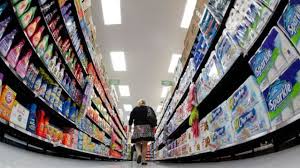
Japan’s consumer sector continued a recovery resulting in the country’s retail sales rising for a fifth straight month in July. The growth was higher than expectations even as doubts over consumer spending and resultant continued growth and have been cast by a coronavirus resurgence.
The government was forced to expand a state of emergency earlier this month because of a surge in Covid-19 cases caused by the Delta variant of the coronavirus. Such extensions are now threatening rise in consumer spending and upend recovery of the economy which has been a fragile one.
In July, there was a 2.4 per cent year on year rise in retail sales, showed government data on Monday, which was slightly higher than the media forecasts of economists of 2.1 per cent growth. The growth rate of retail sales was 0.1 per cent in June.
"The recent strength in retail sales is unlikely to last," Marcel Thieliant, Senior Japan Economist at Capital Economics, said in a note.
"The severe Delta wave now hitting the country coupled with an ever-expanding list of prefectures under states of emergency resulted in a renewed weakening in consumption this quarter," Thieliant said.
The estimate beating retail sale growth of July happened despite Japanese authorities struggling to defying population to get them to stay at home and follow other restrictions in major cities of the country such as in Tokyo – where Summer Olympic games were held this month.
There was strong demand for a range of retail items such as cars, clothing, general merchandise and food while higher petrol prices helped boost in sale revenue of fuel, showed data from the trade ministry of Japan.
The largest year on year growth in sales was reported for the smaller retail establishments such as convenience stores and drug stores.
However, considering the steep slide last year for the same month due to the coronavirus pandemic, the growth appeared to be large.
In July, retail sales rose by 1.1 per cent, adjusted seasonally, compared with the previous month of June, as the surprising growth was fuelled by strong consumption in the second quarter, driven by the Tokyo Olympics.
For the April-June quarter, growth in the third largest economy of the world was better than expected by analysts and economists, driven largely by increased private consumption which accounts for more than half of the gross domestic product of the country.
But with the more contagious Delta variant of the coronavirus threaten to disrupt the healthcare system of Japan and as the state of emergency restrictions now encompassing about 80 per cent of the total population of the country, the strong rebound in consumer consumption in the country is a challenging prospect for policy makers.
"People's mobility has been decreasing, and consumption may peak out in August," said Atsushi Takeda, chief economist at Itochu Economic Research Institute, noting that the downward trend could drag until September.
(Source:www.wtvbam.com)
The government was forced to expand a state of emergency earlier this month because of a surge in Covid-19 cases caused by the Delta variant of the coronavirus. Such extensions are now threatening rise in consumer spending and upend recovery of the economy which has been a fragile one.
In July, there was a 2.4 per cent year on year rise in retail sales, showed government data on Monday, which was slightly higher than the media forecasts of economists of 2.1 per cent growth. The growth rate of retail sales was 0.1 per cent in June.
"The recent strength in retail sales is unlikely to last," Marcel Thieliant, Senior Japan Economist at Capital Economics, said in a note.
"The severe Delta wave now hitting the country coupled with an ever-expanding list of prefectures under states of emergency resulted in a renewed weakening in consumption this quarter," Thieliant said.
The estimate beating retail sale growth of July happened despite Japanese authorities struggling to defying population to get them to stay at home and follow other restrictions in major cities of the country such as in Tokyo – where Summer Olympic games were held this month.
There was strong demand for a range of retail items such as cars, clothing, general merchandise and food while higher petrol prices helped boost in sale revenue of fuel, showed data from the trade ministry of Japan.
The largest year on year growth in sales was reported for the smaller retail establishments such as convenience stores and drug stores.
However, considering the steep slide last year for the same month due to the coronavirus pandemic, the growth appeared to be large.
In July, retail sales rose by 1.1 per cent, adjusted seasonally, compared with the previous month of June, as the surprising growth was fuelled by strong consumption in the second quarter, driven by the Tokyo Olympics.
For the April-June quarter, growth in the third largest economy of the world was better than expected by analysts and economists, driven largely by increased private consumption which accounts for more than half of the gross domestic product of the country.
But with the more contagious Delta variant of the coronavirus threaten to disrupt the healthcare system of Japan and as the state of emergency restrictions now encompassing about 80 per cent of the total population of the country, the strong rebound in consumer consumption in the country is a challenging prospect for policy makers.
"People's mobility has been decreasing, and consumption may peak out in August," said Atsushi Takeda, chief economist at Itochu Economic Research Institute, noting that the downward trend could drag until September.
(Source:www.wtvbam.com)














